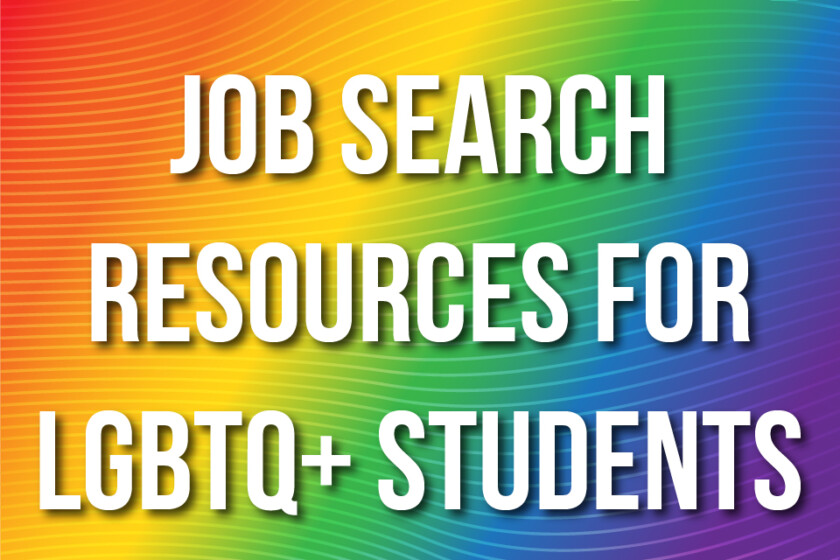
Across UConn’s campuses, there are numerous offices and departments available to support and guide LGBTQ+ students in their career search process and preparation. Within the Center for Career Development, LGBTQ+ students can find strong and applicable resources and assistance related to their career path. Scheduling a meeting with a career coach to aid in navigating conversations regarding workplace diversity and the use of pronouns is a great first step when beginning their search for opportunities and the development of application materials.
Drexel University’s Steinbright Career Development Center, like UConn’s Center for Career Development, is focused on promoting diversity and inclusion in the workplace. Drexel’s Center has published career modules that specifically address LGBTQ+ areas in the employment hiring process. In tandem with the modules, Drexel’s Center also includes a resource guide that lists nationwide tools for job searches, statistics on companies, and reported policies and information exclusively for job seekers who identify as transgender. These modules can be used as a resource for LGBTQ+ students who are at any point in their career path.
- Module 1: dedicated to informing LGBTQ+ students of potential discrimination within the workplace, more specifically, the inaccurate use of pronouns. The module provides information regarding current international, federal, and state legislation that prohibits discrimination based on sexual orientation and gender identity.
- Module 2: discusses the job search process for LGBTQ+ students and the importance of researching the potential employer’s policies on promoting an accepting environment. There are several factors that can indicate workplace culture. For example, an equal opportunity agreement, diversity training, and benefits packages that provide coverage for domestic partners, gender reassignment surgery, and hormone therapy. Students are encouraged to contact the interested company’s human resources departments prior to applying to inquire about the mentioned diversity policies.
- Module 3: focuses on résumés and cover letters along with determining what personal information should be shared with a potential employer. Within this module, it is promoted that the student knows who the “audience” is when developing their application materials. Students should learn about the company’s work environment and the influence of politics and geographical location on the employer’s diversity acceptance. In addition, individuals within the LGBTQ+ community should decide if mentioning their sexual orientation and/or gender identity is something they would like to share in their résumé or interview. There are several ways to include one’s identification with the LGBTQ+ community through acknowledging one’s participation in organizations associated with equality and an elevator pitch that depicts ones’ beliefs.
- Module 4: Trans Professional Pointers. As shown in the respective module, individuals who identify as transgender face a number of questions and sometimes, uncomfortable situations in relation to their identity. Individuals need to start with their support system and note the resources available to them, especially those on their campus. On a national scale, numerous organizations can be helpful, such as the National Center for Transgender Equality and the Human Rights Campaign.
Implementing resources such as the modules presented by Drexel and the support provided at UConn’s Center for Career Development, LGBTQ+ students can be confident in their career search. The LGBTQ+ Affinity blog and UConn’s Rainbow Center are also focused on supporting LGBTQ+ students and have materials that can be of use to job-seeking students.
